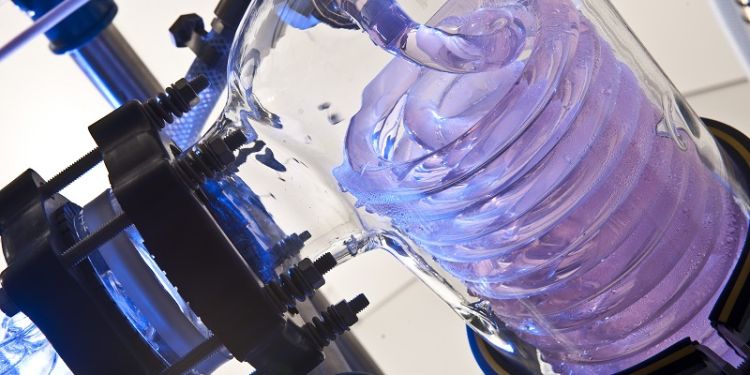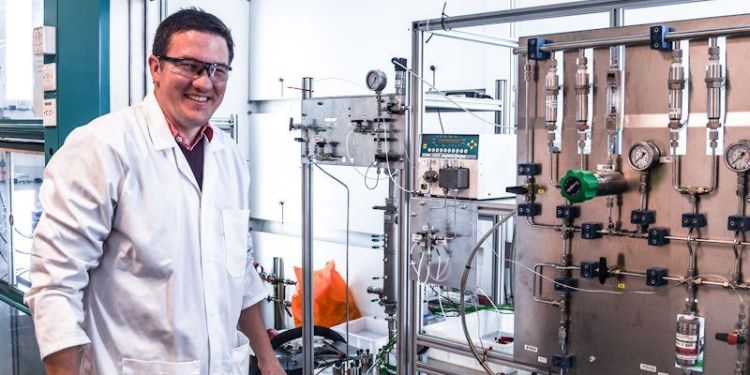Leeds and Nottingham win £1.8m EPSRC award to transform pharmaceutical manufacturing

A groundbreaking project to revolutionise pharmaceutical manufacturing has been awarded £1.8 million by the Engineering and Physical Sciences Research Council (EPSRC).
Reconfigurable, Robotic & Responsive Reactors for Processes through Intensified Development (R4PID) will be led by the University of Leeds in partnership with the University of Nottingham. It aims to deliver transformative technologies that accelerate drug development and production while minimising environmental impact and manufacturing costs.
R4PID, which was co-created with AstraZeneca and ChemAI, will be led by Richard Bourne at the University of Leeds, alongside Michael George of the University of Nottingham, supported by a dynamic team including Adam Clayton, Gilian Thomas, and Thomas Chamberlain. It looks to address the most pressing challenges in pharmaceutical production, leveraging future technologies to tackle both new and emerging difficulties facing the industry.
R4PID will drive the development of technologies for the UK pharmaceutical sector to meet these evolving demands by enabling faster, more responsive production processes with sustainability at every stage, aligning itself with the UK’s transition to net zero, as well as the industry’s broader push towards digitalisation, automation, and smart factories.

Professor Richard Bourne will lead R4PID.
The team’s integrated approach will combine AI-controlled reactors, state-of-the-art process monitoring, and machine learning to enable faster and more efficient process development. Through these strategies, the team aims to reduce material use and waste generation.
R4PID was unveiled alongside five other additional projects, which collectively focus on the evolution of manufacturing technologies and processes, and received nearly £7.5 million in EPSRC funding. Each has been co-created with industrial partners, with researchers focusing on increasing the sustainability of manufacturing processes – a noted area of academic strength in the UK.
Professor Richard Bourne, of the University of Leeds, said: “We’re thrilled to drive forward smart technologies that not only accelerate pharmaceutical development but also hold real commercial potential. This project represents a major step toward smarter, more sustainable manufacturing that can be rapidly deployed across the industry.”
Professor Michael George, of the University of Nottingham, said: “This exciting new collaboration between Nottingham and Leeds allows us to significantly expand the capabilities of self-optimising flow systems by integrating novel Process Analytical Technologies. This will enable real-time decision-making and adaptive control, pushing the boundaries of what’s possible in pharmaceutical manufacturing.”




